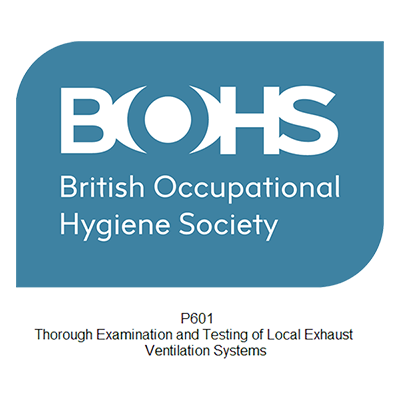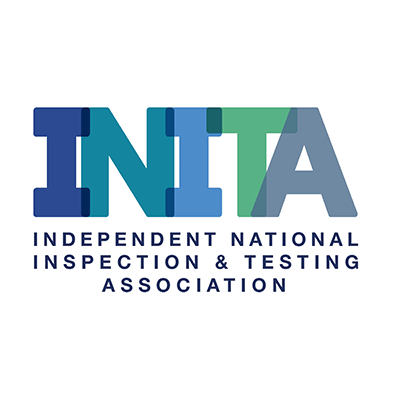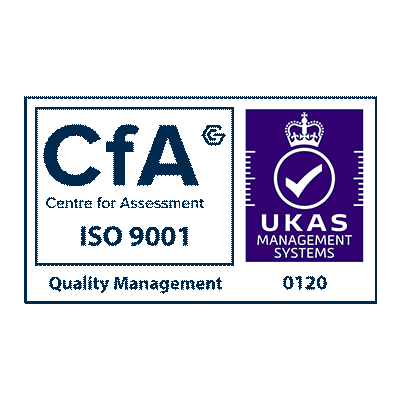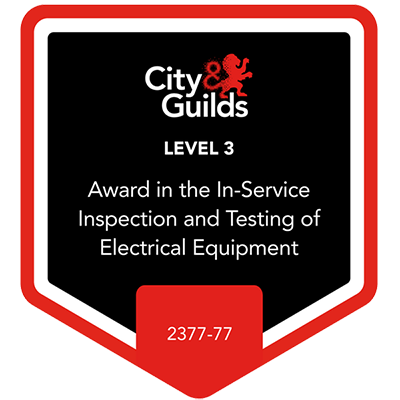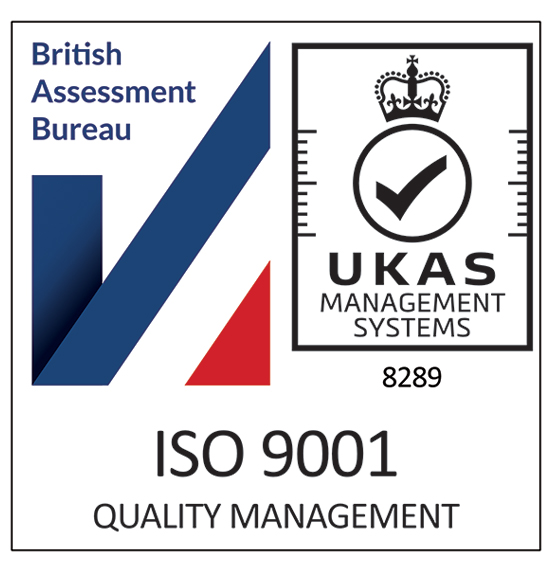PUWER FAQ
Friday, 02 August 2024What is PUWER?
According to the HSE, the main aim of PUWER is to ensure that work equipment doesn’t result in health and safety risks, regardless of its age, condition or origin.
Simply put, PUWER helps to keep your workforce safe. It ensures the safety of all equipment and machinery that is operated within a workplace environment – whether that is a factory, warehouse, construction site, office, retail or care home. In order to maintain compliance with the regulation, organisations should undergo regular PUWER inspections to ensure that their equipment is safe to use.
What does PUWER stand for?
So, what does PUWER stand for? PUWER is the Provision and Use of Work Equipment Regulations 1998. And if you’re wondering if the regulations apply to your business, the HSE states the following: “If you are an employer or self-employed person and you provide equipment for use at work, or if you have control of the use of equipment, then the Regulations will apply to you”.
Why is PUWER important?
Keeping workers safe at work should be the aim of every organisation. When it comes to industries where the risk of harm is higher due to the use of equipment or machinery, this aim is even more important. To put that into context, according to the HSE, 135 workers were killed in work-related accidents in 2022/23, while employers reported 60,645 non-fatal injuries during the same period.
What does PUWER cover?
PUWER covers all equipment that is used in a workplace. When it comes to the specific PUWER inspections, they vary according to the equipment in question and the potential risks. As a rule, regardless of the item, an inspection should include visual checks, functional tests and testing, looking at the type of equipment, where it is used and how it is used.
As an example, when a pallet truck is PUWER-inspected by a competent person – such as an Engineer Surveyor from HESL – they will conduct a visual and functional inspection of the hydraulic system, lifting linkage, brakes, tiller handle position, decals, and general structure of the pallet truck.
Once the PUWER inspection is over and has passed, you’ll receive a report detailing the inspection and outcome.
What is the purpose of a PUWER inspection?
As mentioned, PUWER mandates that all equipment used in a workplace is safe to use – keeping employees safe from harm and mitigating risk. The purpose of a PUWER inspection is to ensure the equipment and machinery in question is always compliant with the PUWER regulation.
In addition to regular inspections, employers must ensure the following:
- The equipment is fit for use, purpose and the conditions in which it will be used
- The equipment is well-maintained
- Inspections are carried out by a competent person to ensure the equipment’s ongoing safe use
What equipment is covered in PUWER?
When it comes to PUWER, any equipment that is used by your employees at work is included in the regulation. This includes hammers, knives, ladders, drilling machines, power presses, lifting equipment or dumper trucks.
The HSE breaks this down as follows:
- Toolbox tools – like hammers and handsaws
- Single machines – such as drilling machines, circular saws, photocopiers
- Apparatus – such as laboratory equipment like Bunsen burners
- Lifting equipment – such as hoists, lift trucks, and elevating work platforms. You can find out more about lifting equipment and LOLER in our blog ‘What is a LOLER Inspection’
- Other equipment – such as ladders, pressure water cleaners
- A series of machines connected together – such as a paper-making line
How often should PUWER testing be done?
Due to the sheer variety of equipment and machinery covered by the regulation, the frequency of PUWER inspections also varies. It also depends on where the equipment is being used (i.e. in a harsh environment) and the rate of deterioration from one inspection to the next.
As guidance, the HSE states: “The frequency of inspections should be based on how quickly the work equipment or parts of it are likely to deteriorate and therefore give rise to a significant risk. This should take into account the type of equipment, how it is used and the conditions to which it is exposed”.
How can HESL help?
Hutcheon Examination Services (HESL) has a team of professional engineer surveyors who not only have the qualifications to perform PUWER inspections for organisations in a range of industries, but they have the experience to make the process as smooth and streamlined as possible.
Our approach is as follows:
- We work to your schedules, making sure your organisation can continue its normal operations with minimal interruption
- We do not cut corners. It’s always safety first and we deliver PUWER inspections to the highest standards
- We provide all the documentation you need, before and after your inspection, including reminders for upcoming examinations and the required post-inspection reports for your compliance records
Our engineer surveyors are supported by our central planning department who will take care of the admin around your inspection, from booking your first PUWER inspection to sending reminders and being available to answer any questions you may have.
Contact us today if you’d like to learn more about streamlining your next PUWER inspection. We’re here to help!
Gillette
Friday, 17 May 2024Overview
Gillette has a heritage that goes all the way back to 1901 when razor blade pioneer King C Gillette developed the first safety razor blade. Fast forward 123 years and the brand is world-famous and synonymous with precision, innovation and sport. It is owned by P&G and is headquartered manufactured in the UK, in Reading.
Alongside finance, administration and marketing, all engineering, manufacturing and production takes place at this site. A key part of the brand’s success is ensuring operations are streamlined, efficient and safe – with worker safety a priority.
Compliance achieved
This is where Hutcheon Examination Services (HESL) enters the picture. Gillette’s manufacturing and distribution centre operates a host of equipment from gantry systems and big bag lifting frames, to a fleet of electric pallet trucks and pneumatic stacker trucks.
To make sure safety standards are met and staff are protected while performing their duties, our expert HESL Engineer Surveyors carry out six-monthly inspections across the entire estate of equipment.
This is how we help Gillette
- LOLER examinations – our qualified engineer surveyors examine Gillette’s lifting equipment, including the fleet of pneumatic stacker trucks and mobile lifting platforms. In accordance with the Lifting Operations and Lifting Equipment Regulations 1998 (LOLER), we make sure the equipment is fit for purpose and performing as it should.
- PUWER examinations – the Provision and Use of Work Equipment Regulations 1998 (PUWER) govern the safety of all machinery and equipment operated within a workplace. For Gillette, our qualified engineers surveyors examine and test the host of equipment on its Reading site, including its fleet of electric pallet trucks – all to ensure they are safe for continued operation.
- Load testing – this area of examination covers all load bearing equipment and making sure it is capable of handling the needed load safely and securely. At the Gillette site, this includes our experienced team examining equipment such as the gantry systems and manual chain blocks.
Health and safety: the process made easy
Not only is our team highly qualified and experienced in delivering the relevant tests and examinations, from LOLER and PUWER, to load testing, we also provide an efficient service that takes the pain out of compliance and testing. This includes our central planning department that liaises with customers like Gillette from the first stage of booking an inspection through to sending reminders, booking follow-ups and being available whenever needed.
Herman Miller
Friday, 17 May 2024Overview
Herman Miller designs and manufactures high-end furniture, accessories and lighting for workspaces. The company began in the US in 1905 as the Michigan Star Furniture Company before being bought in 1923 by DJ De Pree and his father-in-law Herman Miller, who lent his name to the company from then on. The company made a name for itself by designing and manufacturing modern furniture and hiring designers who created many products that are now considered classic pieces.
Over 100 years later, Herman Miller is known for innovation, contemporary interior furnishings, ergonomic office chairs and elegant desks.
In the UK, Herman Miller's headquarters is based at PortalMill, a state-of-the-art facility in Melksham, Wiltshire. From here, all manufacturing and central business functions for the European region, including production and assembly of its market-leading office furniture, take place.
With such an extensive operation on site that includes a host of machinery and industrial equipment, worker safety is crucial. This is where Hutcheon Examination Services (HESL) has partnered with the furniture manufacturer. HESL has an established reputation in the health and safety industry, offering a host of compliance, examination and testing services for industrial equipment and machinery.
Innovation design – safe manufacturing
The protection of workers and safe operation of equipment is business critical for an organisation like Herman Miller, which is why it relies on our HESL team of qualified engineering surveyors to carry our regular examinations on all its lifting equipment and other machinery.
This is how we help Herman Miller
- LOLER examinations – the Lifting Operations and Lifting Equipment Regulations 1998 (1998) state that all lifting equipment must be regularly examined to make sure it is fit for purpose. Our expert engineer surveyors conduct these examinations on all Herman Miller’s lifting equipment, including its fleet of electric forklift trucks.
- PUWER examinations – the Provision and Use of Work Equipment Regulations 1998 (PUWER) cover the safety of all workplace machinery and equipment. For our work with Herman Miller, this includes examining equipment such as manual pallet trucks and electric pedestrian-controlled pallet trucks to ensure optimum operation and safety onsite.
- Load testing – we also work with Herman Miller to examine and test all load bearing equipment to make sure it complies with safety regulations and can support the weight needed, all with the aim of ensuring protected workers and safe operations.
Team work delivers streamlined services
We work with a wide range of companies and understand the importance they place on worker and equipment safety. Our expert team of fully qualified engineers is supported by a customer team – our central planning department – that makes the process of compliance a smooth one. The team is always on hand to answer questions, book inspections and make sure that customers like Herman Miller can focus on the business at hand while we take care of their examination and compliance requirements.
Video Screen Services
Friday, 17 May 2024Overview
Video Screen Services (VSS) is a specialist provider of advanced LED screen and video solutions to the film, television and entertainment industry, across virtual production, television shows and concerts.
The expert team at VSS works closely with production, lighting and video designers, directors of photography and VFX specialists to deliver the best possible solutions to help them meet their production needs and realise their concepts. The company’s expertise extends across fixed installation applications and mobile staging environment.
On schedule with safety checks
The key ingredient for VSS – apart from the team’s expertise – is the use of its stable of equipment to support its quality services. In an industry where time is money and deadlines are vital, VSS’s priority is on ensuring its equipment adheres to the strictest safety standards and the staff who operate it are protected.
This is where Hutcheon Examination Services (HESL) and our team of qualified engineer surveyors help VSS. We provide a range of services – equipment and machinery examinations – to ensure all equipment is functioning as it should.
This is how we help VSS
- LOLER examinations – these examinations (Lifting Operations and Lifting Equipment Regulations 1998) make sure all equipment used in lifting is fit for purpose and meets safety regulations. For VSS, this includes alloy bow shackles and endless round slings.
- PUWER examinations – HESL conducts Provision and Use of Work Equipment Regulations 1998 (PUWER) examinations for VSS. These examinations aim to ensure the safety and equipment and machinery used within a workplace. For VSS this includes pallet trucks.
On track with professional services
In the entertainment industry, meeting production schedules is as important as producing quality content. For VSS, this means the safety of its equipment is crucial in helping them meet deadlines and deliver on customer expectations, which is why it relies on HESL.
We understand the importance of safety, of keeping customers happy and keeping projects on deadline. Our aim, to deliver safety inspections in a streamlined and efficient way; from our expert team of engineer surveyors and their use of a sophisticated scanning system on-site at VSS, to our professional support team that is always available.
PUWER Inspection for pallet trucks: What you need to know
Thursday, 08 June 2023PUWER Inspection for pallet trucks: What you need to know
The Provision and Use of Work Equipment Regulations (PUWER) apply to anyone who hires, owns, operates or controls work equipment. These regulations are applicable to a variety of workplaces, including warehouses, factories, construction sites, offices, retail, and care homes.
Workplaces must properly install, use, inspect, and maintain equipment to make sure it’s safe. Employers, full-time and part time employees, contractors, and suppliers all need to understand PUWER.
Types of equipment covered under PUWER
Basically, all work equipment used in a workplace is covered by PUWER, plant, machinery and tools. Examples of relevant equipment are vast, and of all shapes, sizes and complexity.
A closer look at PUWER inspection of pallet trucks
Hutcheon Examination Services (HESL) specialises in statutory mechanical equipment inspections, including PUWER inspections in a variety of settings.
Pallet trucks are one of the most commonly used pieces of lifting equipment in many workplaces, across all employment sectors. So today we’re looking at PUWER inspection of pallet trucks and telling you how Hutcheon Examination Services (HESL) can help your business keep this equipment safe and compliant.
When is a PUWER inspection required for pallet trucks?
A competent person must inspect pallet trucks at least annually in order for them to comply with PUWER regulations (Regulation 6).
All types of pallet truck are subject to these statutory inspections, including manual hand pallet trucks, pedestrian electric pallet trucks, electric ride-on trucks, compact pallet trucks, and heavy duty pallet trucks.
Also remember that, regardless of the type or origin of your pallet truck, the responsible person in the workplace (e.g. the employer) is obligated to ensure that it meets health and safety standards:
- Before being put into use for the first time
- If/when frequently exposed to conditions that cause deterioration over time e.g. harsh weather conditions
- Following major modifications, significant changes to the way it’s used, or damage
Check your insurance policy, risk assessment and manufacturer’s instructions to identify the criteria for inspection frequency as it applies specifically to your pallet truck/s.
Do pallet trucks come under PUWER only, or are pallet trucks covered by LOLER too?
Yes, sometimes. It’s important to note that PUWER only applies to pallet trucks that lift to a height of 300mm or lower.
High lift pallet trucks that lift above 300mm, both manual and powered, must have a thorough examination in accordance with LOLER as well as a PUWER inspection.
The Lifting Operations and Lifting Equipment Regulations 1998 (LOLER) make it the statutory duty of employers and establishments who own, control and/or operate lifting equipment (e.g. high lift pallet trucks) to have it inspected by a competent person.
Why is a pallet truck PUWER inspection so important?
Failure to annually inspect pallet trucks under PUWER Regulation 6 (and in some cases, LOLER, as highlighted above) could result in fines, legal action, accident and injury. In addition, your insurance may be invalidated.
Deficient pallet trucks might cause damage to goods, property or people. No organisation wants to deal with the legal, financial, practical, insurance implications of such scenarios. They can cost you your conscience and your reputation.
By having a PUWER inspection conducted on the pallet trucks used on your site, you can run your operations with greater peace of mind.
Who should conduct PUWER testing for pallet trucks?
A competent person should carry out PUWER testing on pallet trucks and other types of equipment and must understand the statutory implications on the competent person under Regulation 6 of PUWER
- have adequate experience and knowledge of the equipment.
- Recognise and understand the importance of any defects found e.g. key components and faults.
- be able to report in accordance with regulation 6(3) of PUWER.
To avoid danger and compliance breaches, this person must have been given appropriate information, instruction and training so they can carry out the inspection properly. A qualified third party inspection provider like HESL will tick all those boxes.
All HESL’s Engineer Surveyors are DBS-checked and hold a recognised professional status (EngTech, IEng.) and HESL has over 30 years’ experience in PUWER inspection of pallet trucks (as well as LEV inspections, pressure system inspections, lifting equipment inspections, load testing and PAT testing).
HESL is an ISO 9001 accredited mechanical equipment inspection company. Independent quality assurance audits prove that our services meet the highest standards.
How are pallet trucks PUWER-inspected?
The Central Planning Department at HESL will arrange your pallet truck inspection at a time that minimises disruption to productivity on your site. pallet trucks don’t need to be removed from your site to be inspected.
An Engineer Surveyor from HESL will conduct a visual and functional inspection of the hydraulic system, lifting linkage, brakes, tiller handle position, decals, and general structure of the pallet truck.
What certificates and documents will I get after my pallet truck is PUWER-tested?
You are required to keep records of your PUWER inspections (Regulation 6(3) - Records). This demonstrates compliance and keeps a timeline of previous inspections, so you have a log of common issues and patterns.
Following the pallet truck PUWER inspection, HESL will provide you with the relevant documentation by email within 48 hours.
HESL will give you clear communication from start to finish – and we’ll be in touch with inspection reminders for next time to help you stay on track.
Choose HESL for PUWER inspection - and more
PUWER inspection is essential to make sure that pallet trucks and other work equipment can perform safely and effectively.
We offer PUWER inspection services across Hampshire, Berkshire, Buckinghamshire, Hertfordshire, Oxfordshire, Surrey, Gloucestershire, Wiltshire, North / South / West London and surrounding areas. Our multidisciplined team can carry out various types of inspections as part of the PUWER visit, including PAT testing.
The HESL team is experienced in a wide variety of industry sectors including Automotive, Aerospace, Construction, Marine, Power/Energy, Nuclear, Oil & Gas, Manufacturing & Utilities, Arts & Entertainment, Education, and Care.
Our reputation is built on an independent and quality-first approach – compliance is more important than targets, so we never cut corners.
Let’s make sure your pallet trucks comply with PUWER and LOLER. To talk to us about your pallet truck PUWER inspection and/or a pallet truck LOLER inspection, call 01189 811773 or email
What happens before, during and after a safety inspection of mechanical equipment?
Tuesday, 05 July 2022What happens before, during and after a safety inspection of mechanical equipment?
The safety inspection of mechanical equipment is required at least annually by law. A wide variety of equipment is subject to this legal requirement, including lifts, cranes, pickers, stackers, hoists, extraction systems, air receivers, and many other types of machinery.
If you’ve recently been given the responsibility of making sure the equipment used within your workplace or organisation stays compliant, you will want to know more about what happens before, during and after a safety inspection.
Statutory regulations
Perhaps you’ve recently taken over a facilities management post in a business, school, college or care home, or you’ve opened a new workshop or plant. Maybe you’re in charge of compliance administration and want to better understand the regulations that apply to your site, such as:
- PUWER - Provision and Use of Work Equipment Regulations 1998
- LOLER - Lifting Operations and Lifting Equipment Regulations 1998
- CoSHH - Control of Substances Hazardous to Health 2002 (Local Exhaust Ventilation)
- EAWR – Electricity at Work Regulations 1989 (Portable Electrical Appliance Testing)
- PSSR – Pressure Systems Safety Regulations 2000 (PSSR)
What to expect
Hutcheon Examination Services Limited (HESL) carries out statutory examinations and proof load testing for mechanical equipment across a range of UK industries including Automotive, Aerospace, Construction, Marine, Power/Energy, Nuclear, Oil & Gas, Manufacturing & Utilities, Arts & Entertainment, Education, and Care.
PUWER, LOLER, CoSHH, EAWR and PSSR inspections have been part of our daily working lives for many years. If they’re unfamiliar territory to you, don’t panic. We’re always happy to share our knowledge, starting with a breakdown of what you can expect at each stage of the inspection process…
Before the inspection
- New customers – our experts will carry out a full consultation with you and promptly provide an inspection quote based your specific requirements
- Existing customers – if HESL has worked at your site before, you will receive an inspection reminder from our Central Planning Department 6-8 weeks before your next inspection is due
- Once you have accepted HESL’s quote in writing, we will contact you to book your inspection in at a date/time that minimises on-site disruption and a confirmation email will be sent to you
- All necessary Risk Assessment Method Statements (RAMS) are available from us upon request because we are certified to ISO 9001, the international standard for quality management systems. RAMS detail how specific activities can be carried out safely and include control measures and safety precautions
- Insurance documents and proof of qualifications can also be supplied
- Need us to take a COVID-19 test before we visit your site? No problem, just ask HESL’s engineer surveyors hold a recognised professional status (EngTech, IEng.) and all are DBS-checked. They are multi-disciplined so they can carry out a combination of inspections on the same day for maximum efficiency and minimised carbon footprint, including PAT testing.
On the day of the inspection
- A HESL Engineer Surveyor will arrive at your site at the agreed time. If we’ve visited you before, it will usually be the same person, who will have existing knowledge of your exact equipment
- You will need to meet the Engineer, sign them in and take them through your on-site health and safety induction (time will be allocated for this)
- Once the Engineer Surveyor has been shown the location/s of equipment and any relevant details discussed, he/she will carry out the inspection as per the regulations
Our Engineers work on the basis of quality, not quantity. They are not expected to work to time-based targets because we put compliance first and foremost. We never cut corners to save time because the consequences can be fatal.
We can’t specify exact timeframes until we see the equipment on the day, but we’ll keep you regularly updated on how long it needs to be out of action for so that you can plan around that.
If your site is large, you have lots of equipment that needs inspection, or delays caused by pausing activity are business-critical, more than one engineer surveyor can be booked to reduce downtime.
After the inspection
- A full inspection report is prepared by HESL and emailed to you within 48 hours. It is not a ‘pass’ or ‘fail’ – it is report of thorough examination
- If defects are identified during your inspection that may cause imminent danger to persons, we are duty-bound to notify the HSE and/or the Local Authority
- Please note, we don’t carry out remedial work or shut equipment down, but you will be immediately notified if it is not fit for service and provided with information and photos
- Our friendly team of experts are available to discuss the findings of the report with you
The information related to your inspection will be stored on our system for easy reference. We’ll be in touch again with a renewal reminder at least 6 weeks before the inspection is next due, helping you keep track of compliance and stay safe, year after year.
Talk to us about safety inspection of your mechanical equipement, call our team on 0118 981 1773 or email
How HESL’s Central Planning Department makes inspections simpler
Sunday, 31 October 2021Here at Hutcheon Examination Services Limited (HESL), the strength of our reputation isn’t just built on the comprehensive experience and recognised professional status (EngTech, IEng.) of our DBS-checked Engineer Surveyors.
Clients from a diverse range of industries choose HESL to carry out formal safety inspections for their mechanical equipment because we also offer support with planning safety inspections – thanks to our Central Planning Department.
How do clients benefit from our Central Planning Department?
What do the manager of a busy car workshop, the health and safety officer at a manufacturing plant, and the person in charge of organising regular safety checks on lifts in a care home or school have in common? They are all very dynamic, busy jobs with many responsibilities.
In these roles - and many others – there is often a constant balancing act going on. Statutory inspections in line with PUWER, LOLER, CoSHH/LEV, and PSSR are required for the safety of all those who work at or visit the site.
Lives and livelihoods depend upon this compliance. Accidents and injuries, stalled productivity, a dented reputation, costly fines, and invalidated insurance policies are just some of the high risk implications of not getting mechanical equipment tested regularly. Yet, all the other pressures of management can take up so much time that it becomes hard to keep on top of planning safety inspections.
From sending out renewal reminders to making inspection appointments, as well as compiling formal reports featuring best advice; our diligent Central Planning Department team is here to ease the administrative burden for our clients - and keep everything on track.
We pride ourselves on being accountable. That means we’re always looking for ways to help our clients - and deliver peace of mind.
All in a day’s work: Here’s how our team helps with planning safety inspections.
At HESL, clients don’t just deal with a call centre. Our personable and responsive Central Planning Department takes care of all the following aspects of planning safety inspections.
- Our client database – Prime – provides regular reports to tell us in advance of when inspections are due, so the client doesn’t have to remember
- Existing clients are automatically contacted by email to remind them it’s time to book an inspection
- A follow-up phone call is made to ensure the renewal reminder email has been seen
- The inspection is quoted and booked on time - at a convenient point in the day/week when disruption to the client’s business will be minimised
- New clients can contact us at any time - we’ll quote and book their inspection in the same way and add them to the database
- At the time of booking, we’ll take all the details (equipment, type of site, location) required to ensure the Engineer Surveyor that visits on the day is fully equipped with the right tools and enough time to do the work efficiently, yet compliantly
- All inspection location details are provided to the Engineer Surveyor by us – and clients know exactly who is visiting and when
- Central management of Engineer Surveyor diaries means they only have to focus on the safety inspection at hand, ensuring no distractions and full compliance is achieved
- Following an inspection, the Engineer Surveyor will confirm completion to us and complete a full report.
- Reports are then reviewed and signed off by a senior member of our team and the Central Planning Department sends these to the client within 48 hours of the inspection taking place
- If a safety inspection identifies hazards and reveals that remedial work is required, the Engineer Surveyor will communicate this to us, and we’ll be in touch with the client to re-book another inspection after the equipment has been fixed by a third party
- Urgent A1 defect notices are issued on site and confirmed by email urgently
- Previous inspection records are filed (in hard copy as well as electronically) in case details are needed for future reference
- Ad hoc query? We’re only ever a phone call or email away
We work across a range of industries: Automotive, Aerospace, Construction, Marine, Power/Energy, Nuclear, Oil & Gas, Manufacturing & Utilities, Arts & Entertainment, Education, and Care.
Occasionally some sites, such as social housing, need our help to communicate about inspections to tenants. We’re always happy to help with additional requirements such as these.
Put your trust in our expert team.
We invest in a Central Planning Department because, with nearly two decades in the field of statutory inspections, we understand that compliance and safety must always come first.
Guided by the impeccable organisation and robust processes of our Central Planning Department, our Engineer Surveyors can give their full attention to what they do best – quality inspections.
That leaves the client to log off, lock up and go home at the end of each working day/shift, knowing that statutory safety inspections have been done on time, to the highest standard. They never have to chase us. What a weight off their mind.
Planning safety inspections doesn’t have to be a headache. Talk to our friendly Central Planning Department about how we can help you stay on top of examinations and proof load testing for mechanical equipment at your site. HESL is an ISO9001:2015 accredited organisation.
Getting to grips with safety inspections for lifting equipment in schools, colleges and universities
Thursday, 07 October 2021If you are responsible for health and safety in a school, college or university in the UK, you’ve probably come across LOLER – Lifting Operations and Lifting Equipment Regulations 1998, the rules and regulations that apply to lifting equipment.
Inspections for lifting equipment in schools, colleges or universities are a mandatory statutory requirement, so they will definitely feature on your calendar at least once a year.
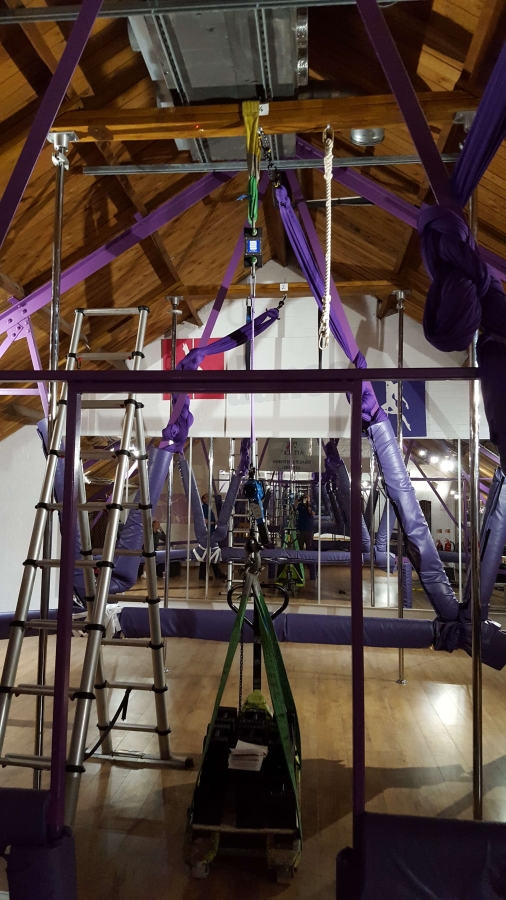
Perhaps you are new to the role of Facilities Manager, Caretaker or Site Manager and you need improve your understanding of the regulations. Even if you have years of experience in health and safety, the complexities of LOLER can be easily misunderstood and you might need clarification to ensure your school, college or university is operating within the bounds of UK law.
Hutcheon Examination Services Limited (HESL) provides professional LOLER examination services and we want to share our expertise with you to help make your site safer and your job easier, so let’s get back to basics…
What is LOLER?
LOLER (The Lifting Operations and Lifting Equipment Regulations 1998) is defined by the HSE (Health and Safety Executive) as follows:
“LOLER regulations place duties on people and companies who own, operate or have control over lifting equipment. This includes all businesses and organisations whose employees use lifting equipment, whether owned by them or not.”
“In most cases, lifting equipment is also work equipment so the Provision and Use of Work Equipment Regulations (PUWER) will also apply (including inspection and maintenance).”
Founded in 2004, HESL has vast experience of LOLER and PUWER examinations in educational settings.
Which equipment is covered by LOLER?
As stated above, it’s important to remember that LOLER applies to lifting equipment that is hired by the school, college or university you work for, as well as what it owns.
Within a school, college or university setting, there may be equipment that’s not commonly or traditionally associated with lifting or lowering loads.
LOLER doesn’t just apply to more general equipment on site such as goods and passenger lifts, it applies to specific apparatus and machinery used on courses, too.
'Lifting equipment' includes any work equipment used by staff and/or students in your school, college or university for lifting and lowering loads, such as:
- Cranes
- Lift trucks
- Hoists
- Elevating access or work platforms
- Tractor front-end loaders
- Stair lifts
- Passenger/goods lifts
- Platform lifts
- Vehicle tail lifts
- Lifting accessories such as ropes, chains, sling shackles, and eye bolts
- Any attachments used for anchoring, fixing or supporting the equipment
- PPE equipment
Automotive, construction, arboriculture, care, theatre and drama, sciences, animal management and engineering are just some of the courses that might utilise lifting equipment subject to LOLER regulations.
Rest assured, all HESL engineer surveyors have the appropriate engineering qualifications to ensure the safety of a wide range of lifting equipment used in schools and colleges.
We are an ISO 90001:2015 accredited organisation and all our engineers are also DBS-checked.
Why is regular inspection of lifting equipment so important?
Every time an object or person is lifted and lowered there is a potential risk from mechanical failure, collapse of the equipment/components, and the person operating or using the lifting equipment falling or being struck. The outcome of such scenarios can be tragic, and every school, college or university has a duty of care to students, staff and visitors to ensure equipment is safe to be used.
Failure of any load-bearing part of any lifting equipment is reportable to the Health and Safety Executive as a Dangerous Occurrence under the Reporting of Injuries, Diseases and Dangerous Occurrences Regulations (2013) (RIDDOR).
Significant damage to property can also be caused by defective lifting equipment. Not only will this cost your school, college or university a lot of money, but it could also potentially disrupt the education of students at a time when they have already experienced disturbed studies due to the pandemic. The future reputation of your organisation could be negatively affected and even at the worst event lead to possible prosecution.
Regular inspection also helps to deliver optimum performance and prolong the lifespan of lifting equipment, so your school, college or university gets the most out of the investment it has made.
You can trust HESL not to cut corners when examining lifting equipment in your school/college. Our engineer surveyors don’t work to timed targets – they always put quality before quantity.
Statutory inspections and your insurance & the HSE
If your statutory inspections are out of date or do not even exist and there was an accident on your premises, you may find that this failure of compliance could mean that your insurance is invalid.
If the Health & Safety Executive is involved and your organisation was found to be in material breach of the health & Safety law, this could also result in costly fines for the Fee For Intervention.
When should lifting equipment in school, college or university be inspected?
LOLER states that the frequency of inspection depends on the type of equipment within an educational establishment. Installation, levels of usage, historical factors and storage conditions must also be considered.
Thorough examinations must be carried out by a competent person:
- Before equipment is taken into service
- Following installation, where safety is dependent on correct installation
- After an incident or malfunction
- When the equipment hasn’t been used for a long period
- Due to rapid wear from heavy usage
- Periodically where lifting equipment is exposed to conditions which may cause deterioration which could lead to a dangerous situation
- If tampering is suspected
According to LOLER, the periods between routine thorough examinations should be every:
- 6 months for passenger lifts and other lifting equipment which lifts persons
- 6 months for lifting accessories
- 12 months for all other lifting equipment
For PSSR (compressed air) examinations are at the discretion of the competent person in accordance with a written scheme
HESL use visual tagging, such as a colour-coded ties and stickers. These are applied to each piece of equipment following examination and are an instant way of identifying equipment that is safe to use. This is an instant indication that the equipment is in statutory compliance.
If you choose HESL to carry out LOLER inspections in your school, college or university, we will send you reminders so that checks can be carried out in a timely manner, flagging up any repairs that might be needed in plenty of time to get them fixed. Going overdue could result in an incident, interrupted teaching, a breach of legal obligations, and a fine or prosecution.
Remember, your insurance could also be invalidated if you fail to comply with LOLER inspections before the due date.
Our friendly administration team will get the inspection booked in at a convenient time, non-term time if needed. We want to make staying safe and compliant as hassle-free as possible, with minimal disruption to your teaching timetable.
Who should carry out the LOLER examination?
LOLER testing must be performed by what is known officially as a ‘competent person’. This means someone qualified to perform the examination properly, such as a HESL Engineer Surveyor who will have all the required training, as well as ample knowledge and experience.
The inspection should be done by an independent third party, ideally not a member of your organisation, because it must be objective and impartial.
A HESL engineer surveyor can carry out the checks, identifying damage and faults which could affect the safe operation of the lifting equipment or accessories. HESL will provide you with a full report and best advice on any action that needs to be taken.
Each piece of inspected equipment must be appropriately marked, and records of each examination must be kept, with any defects being reported to the person responsible for the equipment and the relevant enforcing authority (usually the local authority).
Records must be kept by the person responsible for the lifting equipment as follows:
- New installation (other than of lifting accessories) - for so long as the equipment is kept, or until its location changes (when it should be inspected again)
- EC declaration of conformity certificates and any certificates supplied by the manufacturer. These need to be available if the equipment is kept or sold on and provided to the purchaser.
- Routine thorough examinations reports of all lifting equipment - for at least 2 years, or until the next report, whichever is longer
Helping schools, colleges and universities stay LOLER compliant
HESL currently offers LOLER examination services across Hampshire, Berkshire, Buckinghamshire, Hertfordshire, Oxfordshire, Surrey, Gloucestershire, Wiltshire, North / South / West London and surrounding areas. Even if your area isn't listed, please feel free to contact us and we'll be able to provide a quote.
We also offer additional inspection services for CoSHH, local exhaust ventilation, PSSR compressed systems & oxy-fuel systems.
We manage the whole inspection process, including due date reminders and planning, booking inspections and reports. Count on us to help you keep on top of LOLER regulations and ensure you are always fully compliant - and keep your site safe for all who study and work there.
To talk to us about your LOLER examination requirements, call 0118 981 1773 or email
Contact Us
Should you require more information about the services we offer please feel free to contact us directly or fill out our enquiry form.
Office Address
Unit 26, Youngs Industrial Estate, Paices Hill, Reading, Berkshire, RG7 4PW
Get In Touch
Tel: 0118 981 1773
Our Accreditations
We Are Proud To Hold The Following Accreditations

